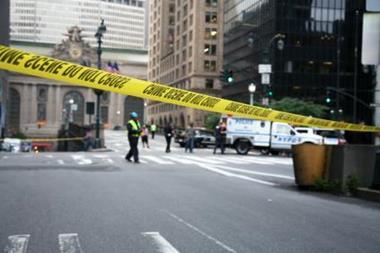US federal reinsurance backstop continues to stabilise the terrorism insurance market, finds Marsh
Despite a changing and uncertain marketplace, US companies continued to purchase terrorism coverage in 2009, according to Marsh.
Sixty-one percent of firms surveyed by Marsh purchased property terrorism insurance in 2009, an increase from 57 % in 2008 and representing a steady climb from 27 % in 2003, according to research by the broker. Median premium rates declined from $37 per million of total insured value (TIV) in 2008 to $25 per million in 2009, according to the report.
“Terrorism risk remains a critical concern for global companies,” said Ben Tucker, a senior vice president in Marsh’s Property Practice and a lead author of the report. “Recent attempted attacks in New York’s Times Square and on a Detroit-bound flight on Christmas day 2009 remind companies of the importance of securing adequate financial protection against the possible catastrophic impact of terrorist events.”
Capacity in the standalone terrorism insurance market, which has served as an important alternative or supplement to coverage made available through the Terrorism Risk Insurance Act (TRIA), has grown considerably in recent years, to a theoretical maximum of $3.76bn. Primary purchasers in 2009 included hospitality companies, large real estate firms, and financial institutions.
Exposure to Terrorism Risk Persists:
• Commercial insurers continue to avoid accumulating high-profile urban exposures due to the residual risk for terror events retained by insurers below the triggers and retention levels set by TRIA, coupled with the relatively high cost of reinsurance in key exposure zones.
• In 2009, the percentage of business that purchased general liability coverage through TRIA appears to have dipped to just above 50 percent. Rates, charged as a percentage of premium for overall coverage, held steady at about 1 percent.
• Several US-based multinational companies have re-examined the adequacy of their property and terrorism insurance in countries with uncertain political environments; political violence coverage for such events as war and civil war in developing countries is of key concern.
• Using a US-domiciled captive to access TRIA coverage to insure an organisation’s exposures against acts of terrorism can be a viable, cost-efficient insurance alternative to traditional property programmes.
TRIA was originally enacted in December 2002 as a response to the attacks of September 11, 2001; the programme has been extended twice and is now set to expire December 31, 2014. According to Marsh, should the federal backstop lapse, a market dislocation could occur due to the obligatory nature of terrorism coverage for certain lines, such as workers’ compensation.
“Terrorism remains a real and present risk, notably in major metropolitan areas,” said Mr. Tucker. “There is a real potential for an economic downturn should terrorism insurance not be readily available. The insurance industry should fully explore all possible options to maintain a viable market, regardless of the level of federal participation beyond 2014.”




















No comments yet